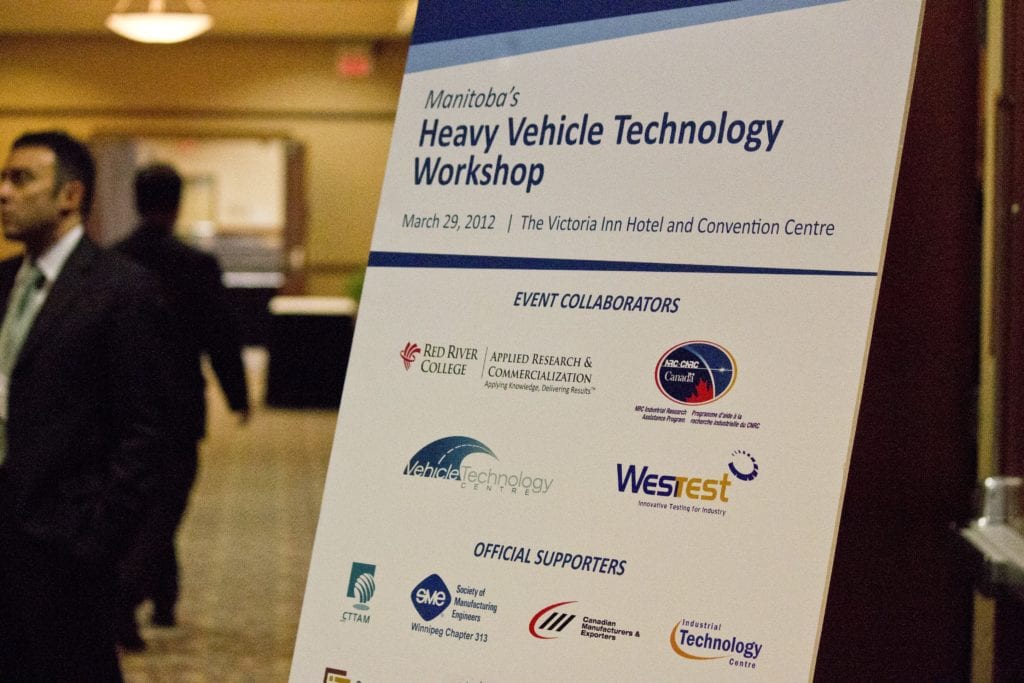Manitoba's All-Electric Bus Prototype Unveiled
 No tailpipe and zero emissions, the scrawl display on the front said it all. Manitoba’s greenest bus has arrived.
No tailpipe and zero emissions, the scrawl display on the front said it all. Manitoba’s greenest bus has arrived.
Delegates from Red River College (RRC), the Province of Manitoba, New Flyer Industries, Manitoba Hydro and Mitsubishi Heavy Industries gathered at the legislature last Friday to unveil the All-Electric Bus, a $3 million, three-year project that is the first of its kind in Canada.
New Flyer has worked with Mitsubishi Heavy Industries to develop the prototype bus, a process that included retrofitting it with Mitsubishi’s lithium batteries. RRC’s contribution to the project is the development of a charging station for the bus, assembling batteries, and analyzing performance data.
Friday’s event served as the starting point for phase two, which will include on-road testing. The 40-foot bus pulled up in grand, but quiet style to the legislature, serving as a backdrop for the presentation, which included speeches from Manitoba Premier Greg Selinger and RRC President Stephanie Forsyth. The speeches were followed by a tour of the bus and a ride to the Forks, Winnipeg’s historic intersection of transportation.
The All-Electric bus project is the catalyst for the creation of RRC’s Electric Vehicle Technology & Education Centre (EVTEC), a new learning and demonstration centre that the Province of Manitoba is supporting with a $100,000 contribution.
For more on Friday’s event, check out some of the coverage from Winnipeg media:
Selinger calls electric transit bus the future of public transport – Winnipeg Free Press
Who launched the electric bus? – Winnipeg Sun
Manitoba’s first electric bus unveiled – Metro Winnipeg










